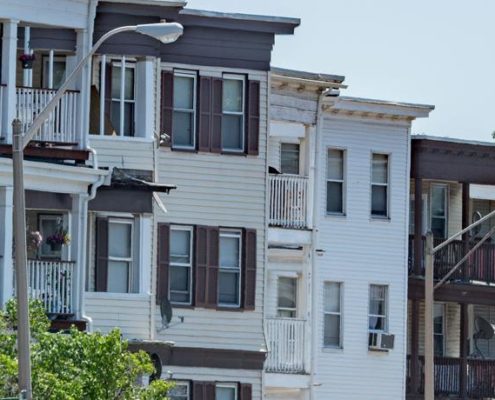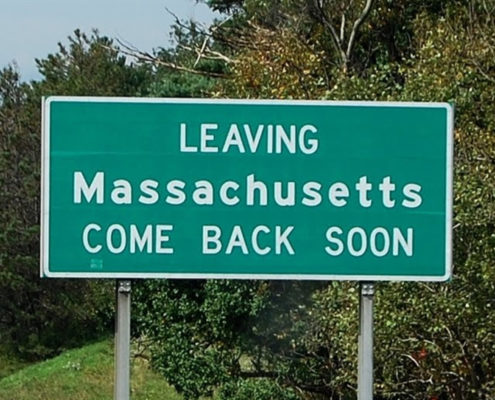Pioneer Report Spotlights Decade-long Building Boom in Massachusetts Construction Industry
BOSTON – In the lead-up to the COVID-19 crisis, the Massachusetts construction industry enjoyed a boom in select subsectors, though employment numbers had yet to recover from the setbacks of the Great Recession, according to a new report from Pioneer Institute that draws data from the MassEconomix web tool.
“The market volume data certainly belies the popular saying about Boston’s two seasons: winter and construction,” said Andrew Mikula, who co-authored the report with Serena Hajjar. “But we’re not necessarily seeing the building boom of the 2010s translate into consistent job gains in the construction industry over the period.”
In “A Snapshot of Massachusetts’ Construction industry during a Decade-long Building Boom,” data from 1998 through 2018 show variations in employment and the number of businesses within the construction industry throughout Massachusetts. The report even includes a map of employment concentration in the construction industry by town.
Most construction employees in the state work in local real estate development, as opposed to construction products and services. Some 70 percent of employees in the state’s construction sector are concentrated in firms with fewer than five employees. The largest employer in the sector in 2018 was Eversource Energy.
The distribution of construction industry establishments in the Commonwealth is starkly imbalanced. On the county level, touristy coastal enclaves like Nantucket and Cape Cod boast the highest concentration of construction firms, while much of Western and Central Massachusetts lag well behind the state average in this category. Somewhat counterintuitively, Suffolk County, which includes Boston, has the fewest construction establishments per capita, but that may be because firms working with construction materials and equipment need more ground-level space than downtown office buildings can provide.
While the total number of both employees and business establishments in the industry has consistently increased from 1998 to 2018, shutdowns associated with the COVID-19 pandemic have the potential to significantly alter these trends.
“The construction industry represents an important middle ground between some of the hardest-hit industries from the pandemic, like brick-and-mortar retailers, and those that could most easily move online, like financial services,” said Mikula. “Industries like construction may be important bellwethers for the overall health of the economy during the COVID-19 recovery period.”
All the reports in Pioneer’s MassEconomix series use the same Your-economy Time Series data to develop aggregated numbers for statewide growth. These data are recorded by Infogroup and compiled by the Business Dynamics Research Consortium (BDRC) at the University of Wisconsin System Institute for Business and Entrepreneurship in Madison, Wisconsin.
The report is the third in a series that presents employment and business establishment trends in the Commonwealth’s industries, using Your-economy Time Series data to release regular publications that create “snapshots” of particular industries and geographies.
About the Authors
Andrew Mikula is a Research Assistant at Pioneer Institute. Mr. Mikula was previously a Lovett & Ruth Peters Economic Opportunity Fellow at Pioneer Institute and studied economics at Bates College.
Serena Hajjar is the Roger Perry Government Transparency Intern at the Pioneer Institute, focusing on the effects of the coronavirus response on the state economy, emerging industries, and tax structures. Ms. Hajjar is a recipient of the Fulbright English Teaching Assistant Grant to Russia for the 2020-21 cycle. She has a B.A. in international relations and Russian and Eastern European studies from the University of Pennsylvania.
Pioneer’s mission is to develop and communicate dynamic ideas that advance prosperity and a vibrant civic life in Massachusetts and beyond.
Pioneer’s vision of success is a state and nation where our people can prosper and our society thrive because we enjoy world-class options in education, healthcare, transportation and economic opportunity, and where our government is limited, accountable and transparent.
Pioneer values an America where our citizenry is well-educated and willing to test our beliefs based on facts and the free exchange of ideas, and committed to liberty, personal responsibility, and free enterprise.
Get Updates on Our Economic Opportunity Research
Related Posts




















